
Woman Doesn’t Want Autistic Sister At ‘Prestigious’ Art Show, Wonders If She’s A Jerk Because Of It
Being there for our loved ones with disabilities comes with many responsibilities. Of course, there are many ways to get through it, but they can put an extra set of demands and challenges on the relatives. So recently, Redditor Fabulous_Lychee_8469 took to the “Am I The A-Hole” (AITA) community to ask people for advice after she got into a heated dispute with her family.
The 18-year-old woman recently got a spot in a prestigious art show she worked really hard for. But as much as she was excited about the opportunity to share her work with everyone around her, she refused to invite her parents and her autistic sister. As you can guess, this decision sparked tons of drama between her and other family members.
“[My sister’s] really smart (she went to an Ivy League School!) but does not do well with social cues,” the user wrote, immediately adding this often affects the way she treats her. Turns out, her sister consistently belittles her and looks for chances to say something mean. The post caused quite a fuss in the community, so be sure to read the whole story and let us know what you think about it in the comment section below.
Recently, an 18-year-old woman shared how she got into a prestigious art show and refused to invite her autistic sister because she is always “bringing her down”
Image credits: yeonhee (not the actual photo)
Laura Cavanagh is a professor of psychology and behavioral sciences at Seneca College in Toronto and has extensive experience in clinical practice with individuals on the autism spectrum. She told Bored Panda that there are many commonly-held myths about autism.
“Many people think of someone locked in their own world or completely disconnected from others. And I think that many people have the misconception that people on the autism spectrum are nonverbal or have an intellectual disability,” she said.
According to Cavanagh, the core deficit in autism spectrum disorders is difficulty with social communication and social impairment. “But that does not mean that people with autism are ‘not social’, or don’t want social relationships, or don’t feel deeply connected to the people in their lives.”
It rather suggests that navigating social situations is difficult for them, so understanding and following the written and unwritten rules of social relationships and interactions is a challenge for people in the spectrum. “Using language for the purposes of social communication is difficult — even if the individual has a vocabulary range in the top percentile!”
“The other core characteristic of autism spectrum disorders is a restricted or repetitive repertoire of interests or behaviors. The commonly-held stereotype that many people picture is rocking or hand-flapping. But it could be an obsessive interest in an obscure or unusual topic. Sometimes individuals will insist on routine and sameness and may appear rigid and inflexible. Many are hypo- or hyper-reactive to sensory stimulation, so things in the environment may feel too loud, too bright — or too easy to ignore,” Cavanagh added.
Unsure of her actions, she turned to the AITA community to ask people if she went too far
Image credits: Keira Burton (not the actual photo)
Image credits: Fabulous_Lychee_8469
It can be heartbreaking to know that celebration of your new milestone and achievements might be clouded by insensitive remarks from one of the closest people you have in the world. Professor Cavanagh is very well aware of the emotional toll that people on the spectrum can put on their loved ones, and the dilemma of comprehending it. “The social impairments in autism can sometimes make it difficult for individuals on the spectrum to maintain social relationships, and these social deficits can sometimes make their behavior difficult for others to understand,” she noted.
“It is not that individuals with autism don’t care about others, but their difficulty in following social rules may make it seem like that is the case,” she said and added that they may sometimes be blunt in their communication style. “Their restricted range of behaviors or activities may make it difficult for them to take an interest in things that are important to others.”
However, it’s important to remember that people on the autism spectrum are not defined by their disability. Cavanagh pointed out that they have all the complexities and range of traits that characterize the human experience.
“Like anyone else, someone might be extraverted or introverted, conscientious or free-spirited, reserved or playful, shy or bold. And so this woman’s sister, quite apart from her autism, may be a difficult person!” Well, if there’s one thing many of us know all too well — sibling relationships are complicated. It’s not that unusual for there to be strain between adult siblings, the therapist mentioned. “It is entirely possible that the sister is unkind and does belittle her — not because she has autism but because she is a person in the world and some people can be kind of mean!”
Trying to find a healthy solution to a family dispute when people are throwing accusations without a care in the world is far from an easy task. But while relationships between brothers and sisters can sometimes take a turn for the worse, Cavanagh said having a sibling with a disability has its own unique gifts and challenges. “Siblings of individuals with a disability have higher rates of emotional issues, anxiety, and stress. They often feel that their siblings’ needs’ take precedence over their own.”
“Unlike parents, siblings do not receive much support from professionals or family members,” the professor told us and stressed the importance of parents seeing the experience from every child’s perspective. “Siblings are often forgotten and may feel that they do not have a voice in family decisions. They may feel pressure to be perfect to avoid causing any further stress on their parents, or they may feel they have to act out to get any attention at all.”
Here’s what people had to say about this whole situation
How siblings form their relationship is out of parents’ control, a therapist said
“I think for parents, it is also important to understand that adult children get to make their own decisions, whether we agree with them or not,” Cavanagh explained. “A parent may disagree with their adult children’s choices, but they need to respect them. And while a parent may wish that the adult siblings’ relationship were different, it is truly out of their control. And attempts to manage it will likely backfire.”
Navigating family disputes, especially when they involve a loved one with a disability, can sometimes be overwhelming. Professor Cavanagh advised parents to put focus on their children’s feelings. “If they want to explain the perspective of each sister to the other, they can do so. As they are a little bit removed from the situation, they may be able to provide insight into the other sibling’s experience without it getting too heated or personal.”
Moreover, she suggested paying more attention to the solutions. “If the artist has chosen not to have her family at the premiere, that is her decision to make,” she said and provided a few helpful questions to consider: “Could she arrange a private tour for the parents and sister at another time? A sneak preview of the event? Some other special time that they could go?”
“Finally, I would advise respecting the adult child’s decision. This story is as much about learning to respect our family member’s autonomy and boundaries, whether we agree with them or not,” Cavanagh concluded.
It would be awesome if people could stop using mental health issues as a get-out-of-jail-for-free card for abusive behaviour. Yes, when you are struggling it's hard to be nice. It's hard to regulate. It's hard to do anything at all. I know. I've been there. But still, at some point, you have to learn to behave and develop some coping mechanisms that don't involve being toxic to the core.
I agree with this to some degree. You do need to learn how to behave at one point, but if you aren't given the right tools, that can be impossible. I despise the fact that the parents tell her to "iGnOrE iT bEcAuSe sHeS aUtIsTiC" tho. You don't like the behaviour of your daughter? Then do something about it. Help her. And don't let her spoil her sisters special moment
Load More Replies...I'm autistic, and being an abusive bully to someone is NOT one of the symptoms. When we're rude because of our "condition" it's unintentional. Like that poor bugger who had the troubles at camp, when I was a kid I was called "rude" all the time but couldn't understand why or what I had done wrong, and I also felt a lot of shame and came to believe I was stupid. I hate hurting other peoples' feelings and when there is an argument I'm almost always the first to apologise even if it wasn't my fault. The sister in this story is just a horrible, cruel abuser who happens to be autistic, and the parents should be ashamed of themselves for enabling her bad behaviour and not teaching her to know better when they had the chance.
I think I avoided a lot of that because I was extremely quiet and shy as a young child. I've got this deep-rooted fear of 'bothering people', possibly due to, in a large part, just not really knowing how to interact with others and them seeming annoyed when I did. So I withdrew more and more. I've still got huge issues with this. I probably actually post less than half of what I write up. I also really detest hurting other people unintentionally, I'm almost painfully empathetic. I was ready to rage on this girl, but her sister bullying her has nothing to do with her being autistic. If the sister went to an Ivy League school, there's no way she doesn't know better. Hope that poor girl can move away soon and get away from that toxic environment.
Load More Replies...NTA. It's bad enough that her sister keeps putting her down every time something good happens to her. It's worse if it's happening in front of her teachers and friends. She worked hard for this and this is an amazing opportunity to showcase her work as a young artist. This is not the day for her sister to say rude remarks about her work. So glad she's moving out.
It would be awesome if people could stop using mental health issues as a get-out-of-jail-for-free card for abusive behaviour. Yes, when you are struggling it's hard to be nice. It's hard to regulate. It's hard to do anything at all. I know. I've been there. But still, at some point, you have to learn to behave and develop some coping mechanisms that don't involve being toxic to the core.
I agree with this to some degree. You do need to learn how to behave at one point, but if you aren't given the right tools, that can be impossible. I despise the fact that the parents tell her to "iGnOrE iT bEcAuSe sHeS aUtIsTiC" tho. You don't like the behaviour of your daughter? Then do something about it. Help her. And don't let her spoil her sisters special moment
Load More Replies...I'm autistic, and being an abusive bully to someone is NOT one of the symptoms. When we're rude because of our "condition" it's unintentional. Like that poor bugger who had the troubles at camp, when I was a kid I was called "rude" all the time but couldn't understand why or what I had done wrong, and I also felt a lot of shame and came to believe I was stupid. I hate hurting other peoples' feelings and when there is an argument I'm almost always the first to apologise even if it wasn't my fault. The sister in this story is just a horrible, cruel abuser who happens to be autistic, and the parents should be ashamed of themselves for enabling her bad behaviour and not teaching her to know better when they had the chance.
I think I avoided a lot of that because I was extremely quiet and shy as a young child. I've got this deep-rooted fear of 'bothering people', possibly due to, in a large part, just not really knowing how to interact with others and them seeming annoyed when I did. So I withdrew more and more. I've still got huge issues with this. I probably actually post less than half of what I write up. I also really detest hurting other people unintentionally, I'm almost painfully empathetic. I was ready to rage on this girl, but her sister bullying her has nothing to do with her being autistic. If the sister went to an Ivy League school, there's no way she doesn't know better. Hope that poor girl can move away soon and get away from that toxic environment.
Load More Replies...NTA. It's bad enough that her sister keeps putting her down every time something good happens to her. It's worse if it's happening in front of her teachers and friends. She worked hard for this and this is an amazing opportunity to showcase her work as a young artist. This is not the day for her sister to say rude remarks about her work. So glad she's moving out.

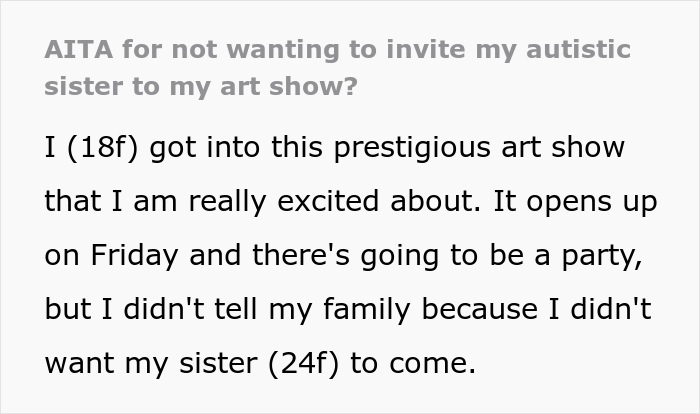
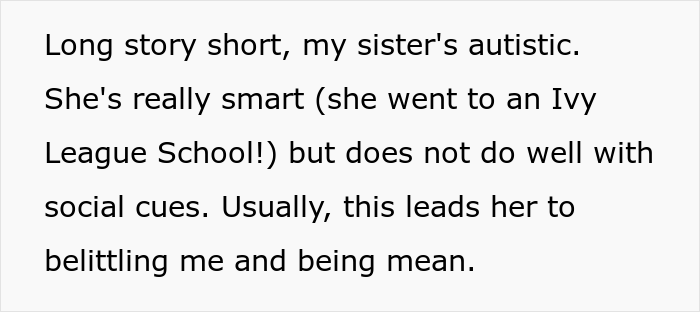

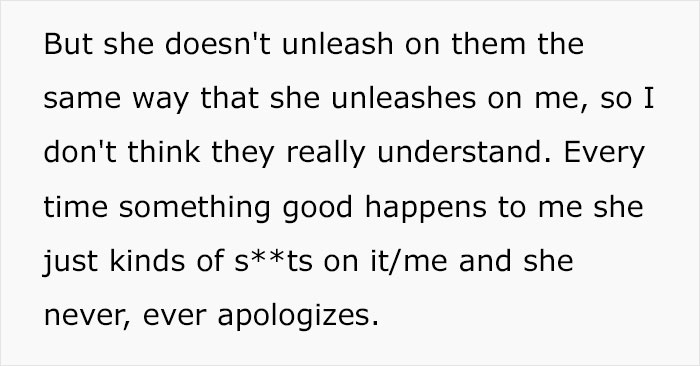
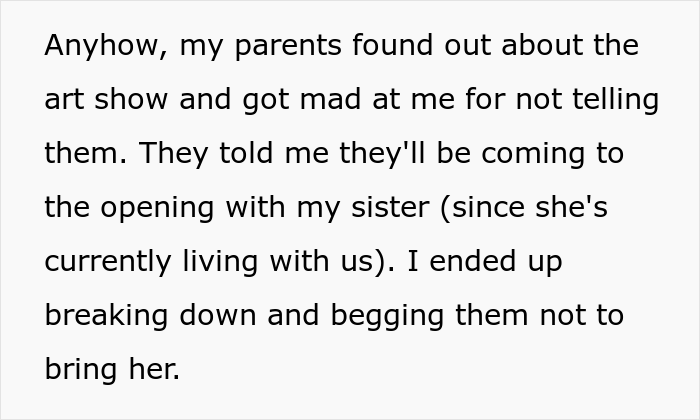
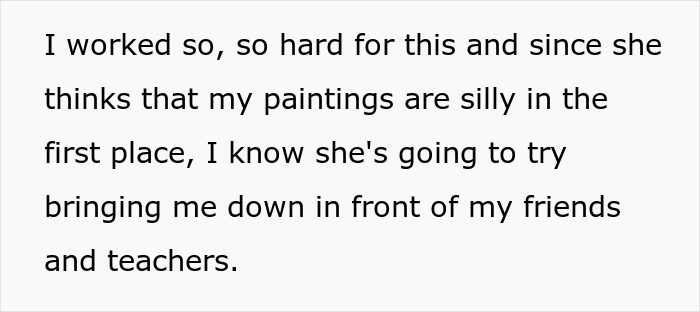

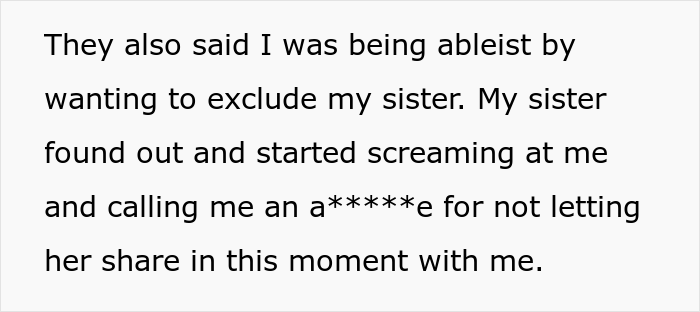
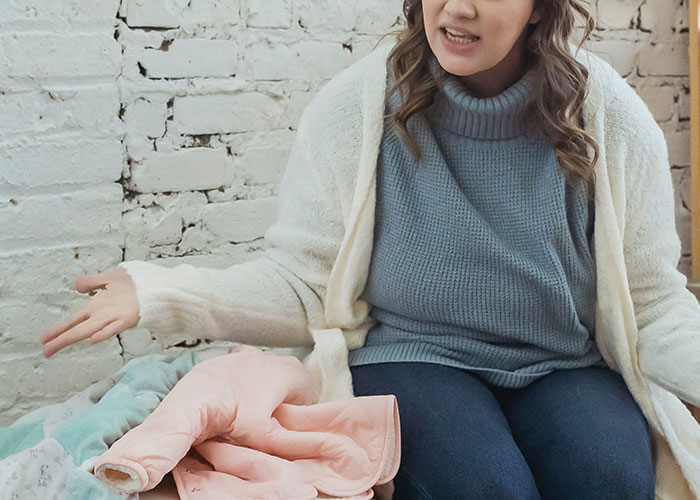
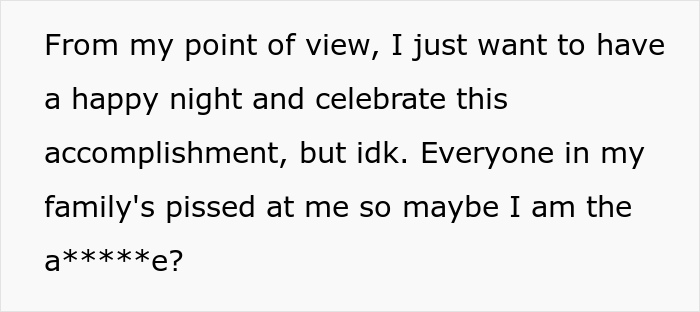
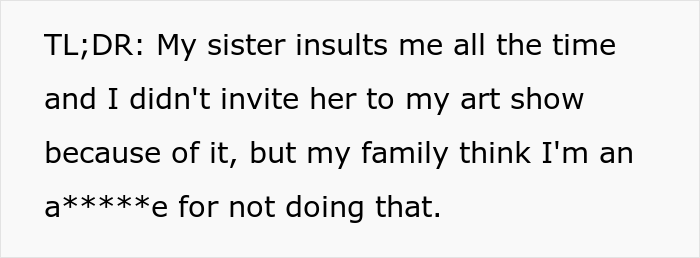

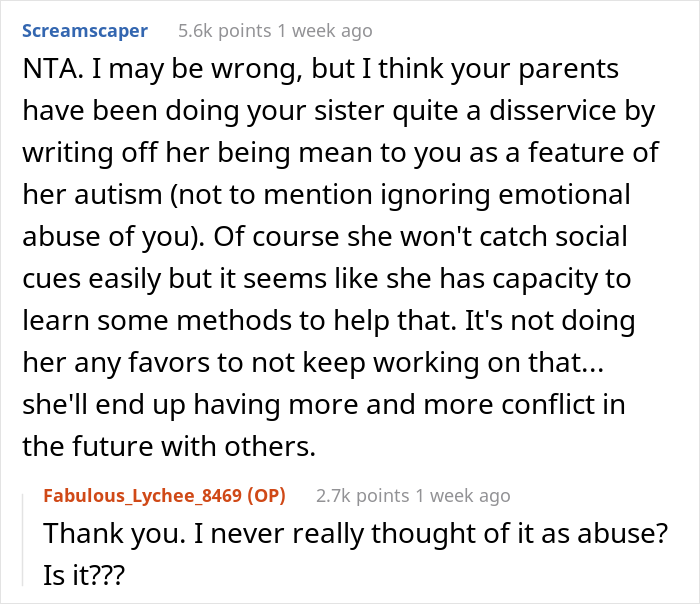
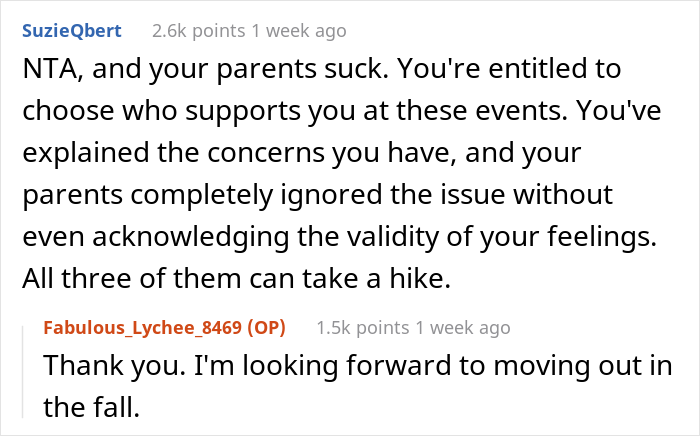
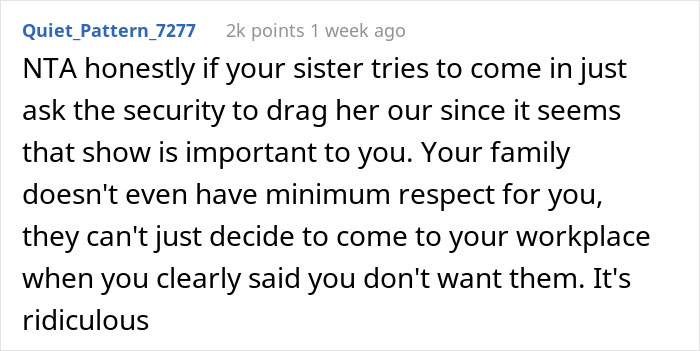
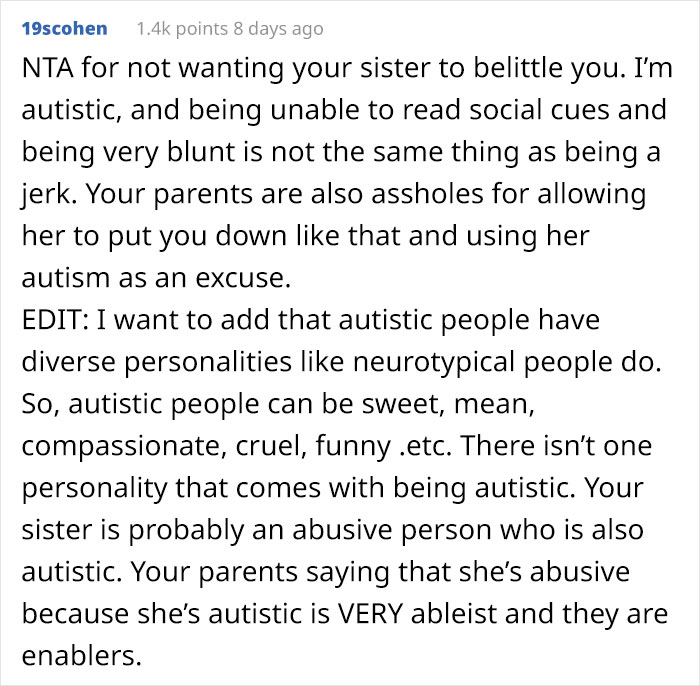
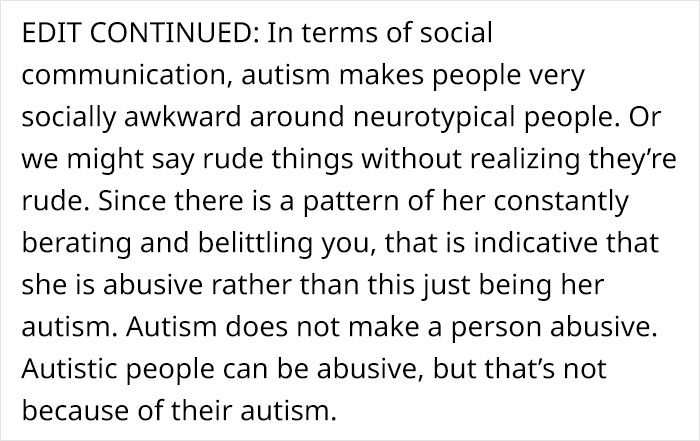
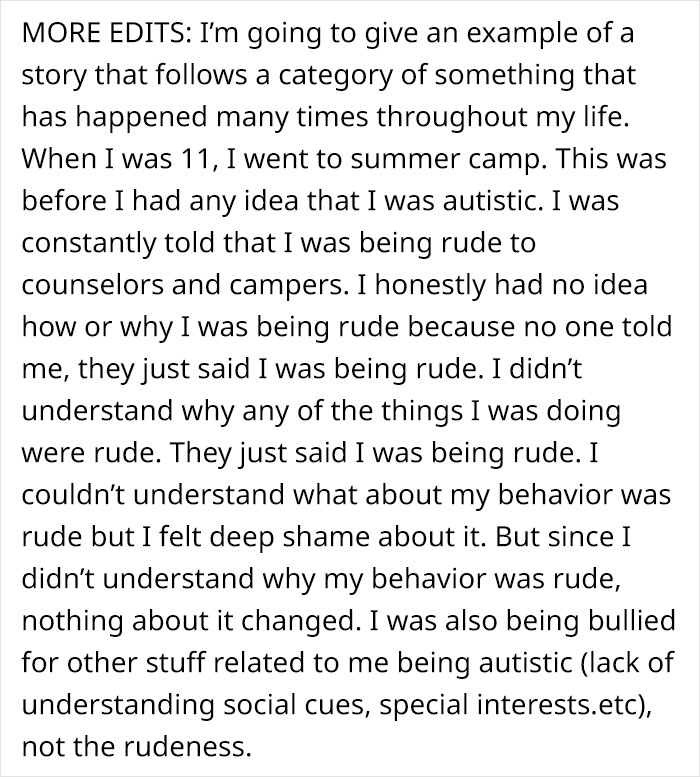
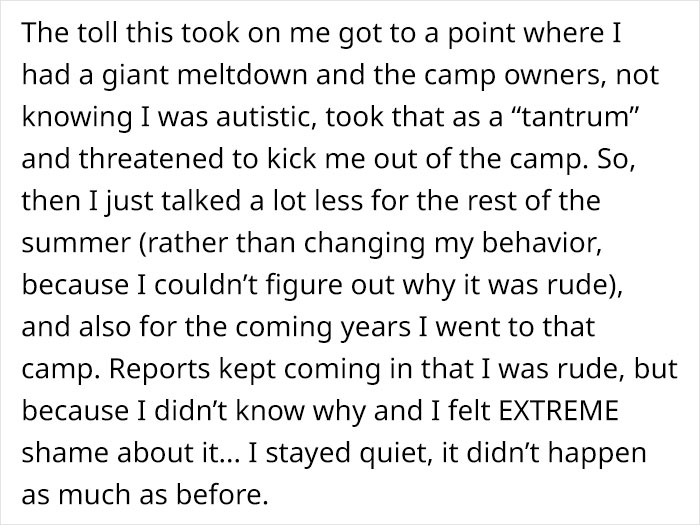
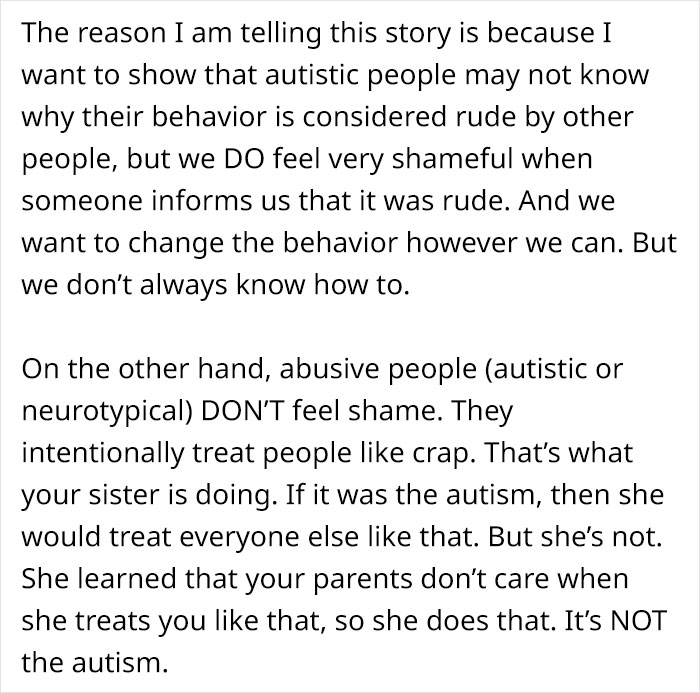
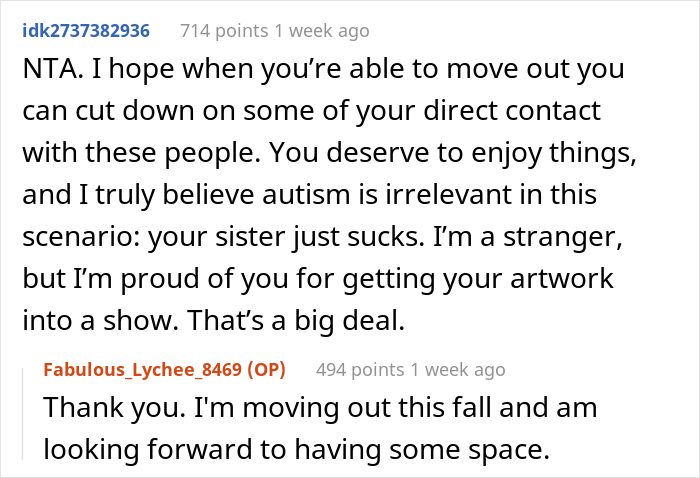
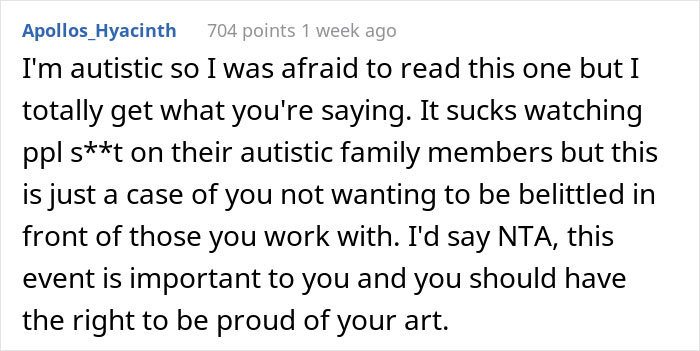
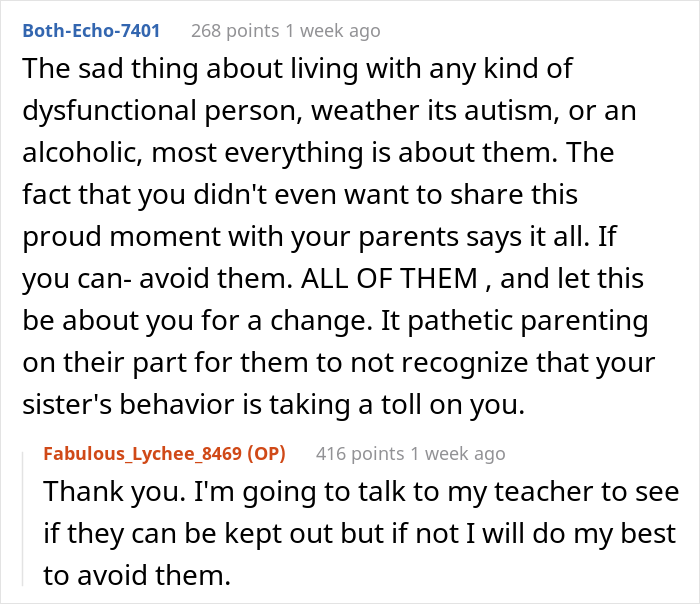
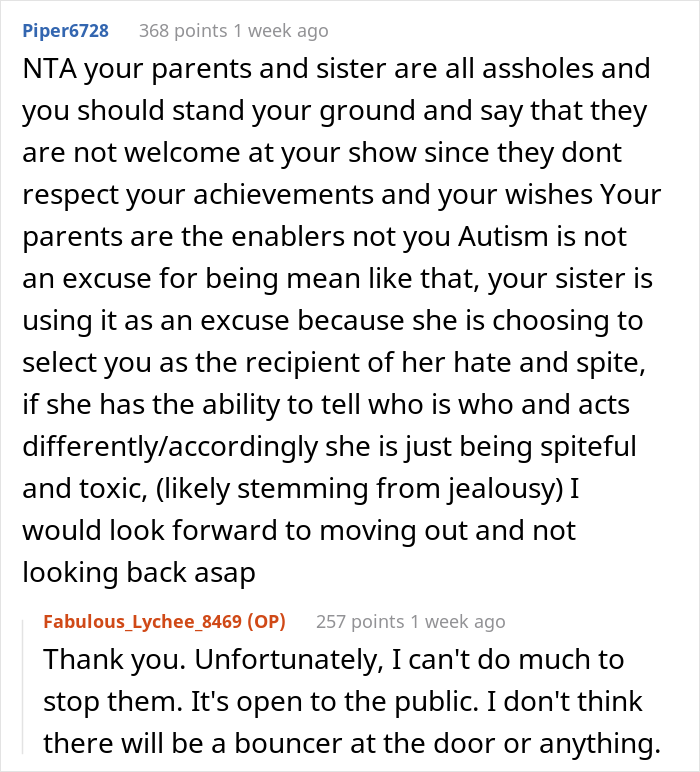
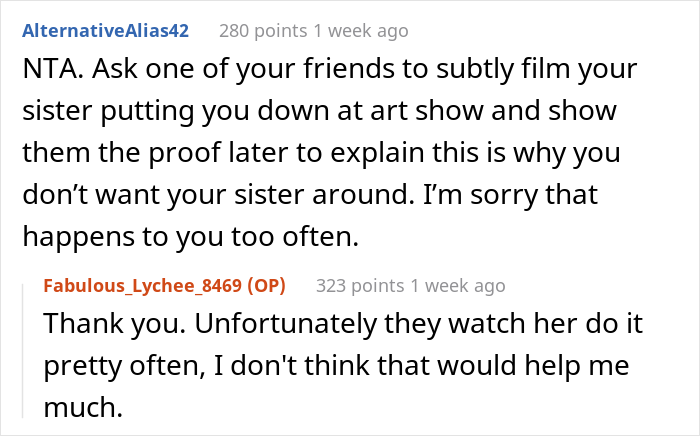
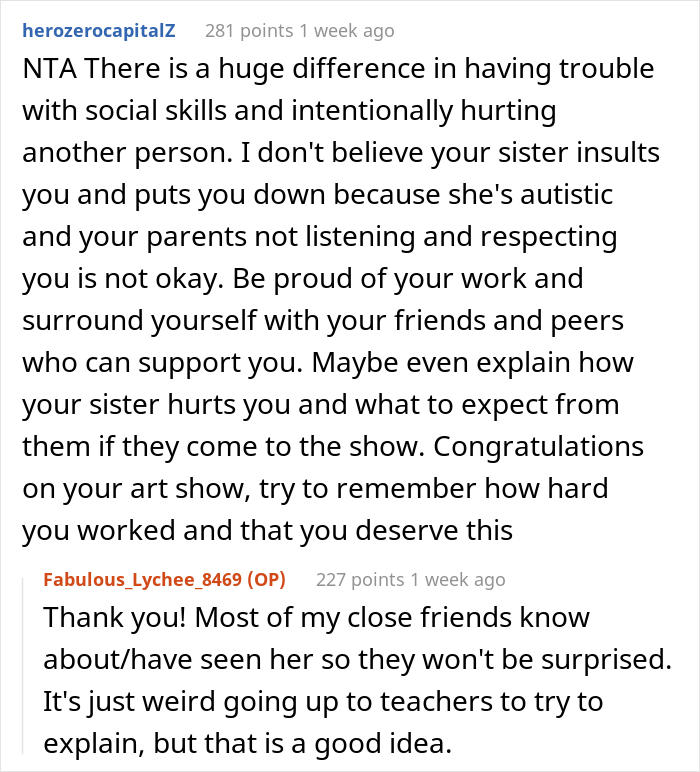
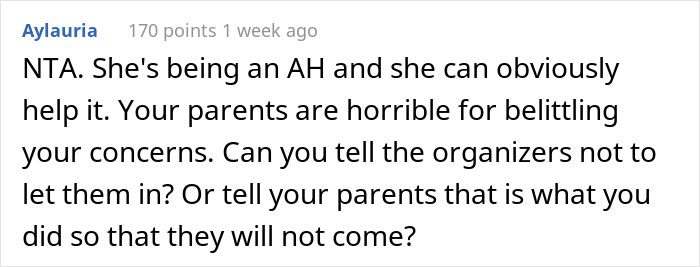





130
56